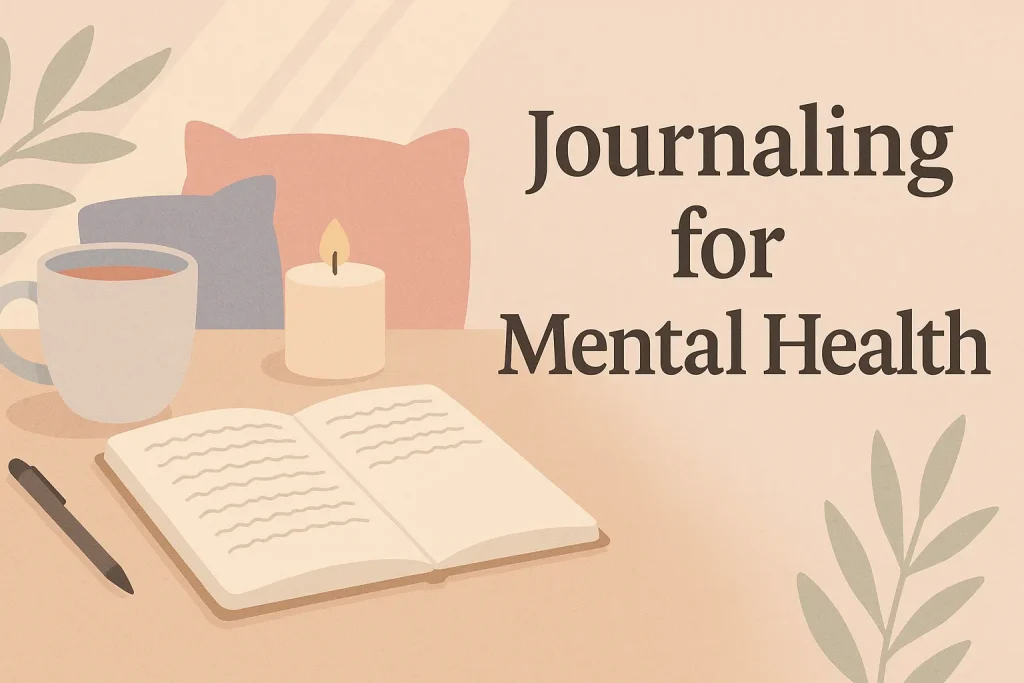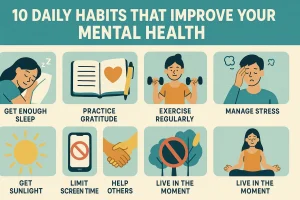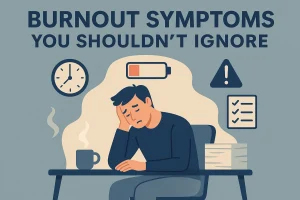How Journaling Helps With Anxiety and Depression

Feeling anxious, overwhelmed, or emotionally drained? You’re not alone—and you don’t need fancy tools or expensive therapy to start feeling better. Sometimes, all you need is a pen and paper.
Journaling is one of the most accessible and effective tools for mental health. Whether you’re struggling with stress, depression, or racing thoughts, writing things down can be the first step toward clarity and healing.
Let’s explore how journaling for mental health can reduce anxiety, improve mood, and help you reconnect with yourself.
Why Journaling Works
It clears the mental clutter.
When emotions stay trapped in your mind, they grow heavier. Journaling helps release them.
It organizes your thoughts.
Writing things down gives form to feelings that feel chaotic, helping you make sense of what’s going on inside.
It activates your brain’s self-awareness centers.
Research shows journaling improves emotional regulation, problem-solving, and reduces rumination (overthinking).
Benefits of Journaling for Anxiety
- Reduces racing thoughts: You slow down and focus.
- Calms your nervous system: Writing helps your brain process emotions.
- Increases self-control: You gain perspective instead of reacting impulsively.
Benefits of Journaling for Depression
- Reveals negative thought patterns: You start to notice inner self-talk.
- Creates space for self-compassion: You become more kind to yourself.
- Builds hope: Tracking progress, even small, reminds you healing is possible.
How to Start Journaling for Mental Health
1. Don’t overthink it
You don’t need to be a “good writer.” You’re not writing for anyone but you.
2. Use simple prompts
Try starting with:
- “Right now, I feel…”
- “One thing that’s stressing me out is…”
- “What I need today is…”
3. Be honest, not perfect
Let your journal be messy, emotional, raw. That’s where healing begins.
4. Make it a habit
Even 5 minutes a day makes a difference. Morning or bedtime are great times to reflect.
Best Types of Journaling for Mental Health
- Free writing: Stream-of-consciousness journaling with no filter.
- Gratitude journaling: List 3 things you’re thankful for daily.
- Cognitive journaling: Challenge negative thoughts and reframe them.
- Mood tracking: Monitor how you feel and what affects it.
Journaling Prompts for Anxiety and Depression
- What is one thought that’s been weighing on me today?
- What would I say to a friend feeling how I feel?
- What am I proud of myself for—today, or ever?
- If I could let go of one thing, it would be…
Final Thoughts
Journaling for mental health doesn’t require perfection—just honesty and consistency. It’s a safe space where you can show up, release, and reconnect.
Writing won’t fix everything overnight. But over time, it becomes a habit of healing—and a quiet reminder that you’re not alone in your thoughts.
📝 Try This:
Tonight, write one page about how your day really felt—not just what happened, but how it affected you. No judgment. Just truth.
Want More Mental Health Tools?
Subscribe to our newsletter for weekly prompts, journaling templates, and emotional wellness insights.




No comments yet. Be the first to comment!